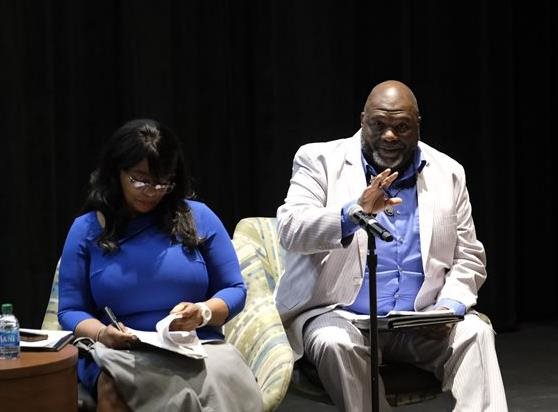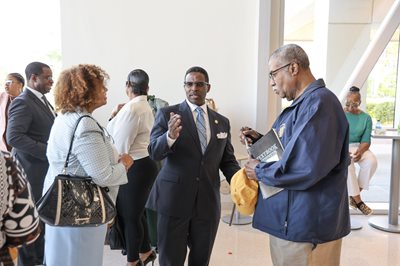 We are in the midst of an epidemic. Gun violence is plaguing our communities. Its root causes are many and varied, but they have come together to create the present situation.
We are in the midst of an epidemic. Gun violence is plaguing our communities. Its root causes are many and varied, but they have come together to create the present situation.
Recently, the Center for African American Public Policy (CAAmPP), held a significant conversation about gun violence, its impact on our communities of color and the critical need for public policy reform. Panelists included representatives from health care, law enforcement, criminal justice, trauma-informed black women’s leadership and academia.
“Gun violence is at an all-time high, period,” said Norfolk State University Sociology Professor Dr. Robert K. Perkins. He went on to provide the following research findings:
- America has more violence today than in its 200+ year experience.
- America is more violent due to guns than any other country in the world.
- Last year, the highest number of people killed were killed by guns.
- 30% of Americans are gun owners, yet there are more guns in America than people.
- The number 1 killer of children today is gun violence.
Other panelists pointed to problems stemming from a lack of resources, inability to earn a living wage, insecurity about having safe housing and adequate food, healthcare needs and educational levels.
“One of the issues related to health that gets dropped and forgotten, even overlooked, is that we often think that when a shot is fired that the individuals who are at the receiving end of that shot are the only ones that suffer,” said Dr. Cynthia Romero, director of the Eastern Virginia Medical School Brock Institute. She said that everyone who hears the shot goes into fight or flight mode, affecting the body’s systems that normally should be calm. “Again, what we need to consider is the true impact of the entire family, the entire community when just one shot is fired.”
 When it comes to elected officials, NSU alumnus Del. Cliff Hayes Jr. pointed to a lack of courage by many of his fellow legislators to take action. After the mass shooting at a Chesapeake, Virginia, Walmart last year, Hayes offered legislation based on meetings he had with the victims’ families. He proposed a 72-hour waiting period when purchasing a gun. The shooter in that case was under stress and Hayes believes based on research, that he may have cooled off during that three-day period. The bill did not make it out of committee.
When it comes to elected officials, NSU alumnus Del. Cliff Hayes Jr. pointed to a lack of courage by many of his fellow legislators to take action. After the mass shooting at a Chesapeake, Virginia, Walmart last year, Hayes offered legislation based on meetings he had with the victims’ families. He proposed a 72-hour waiting period when purchasing a gun. The shooter in that case was under stress and Hayes believes based on research, that he may have cooled off during that three-day period. The bill did not make it out of committee.
“Elected officials and policymakers have got to have the courage to pass measures that make a difference,” said Hayes, “The question is the masses of the people, everyday people, what are you going to do about that? Once we get fed up with leaders not doing what they need to do, then we will begin to see policies that lead to change.”